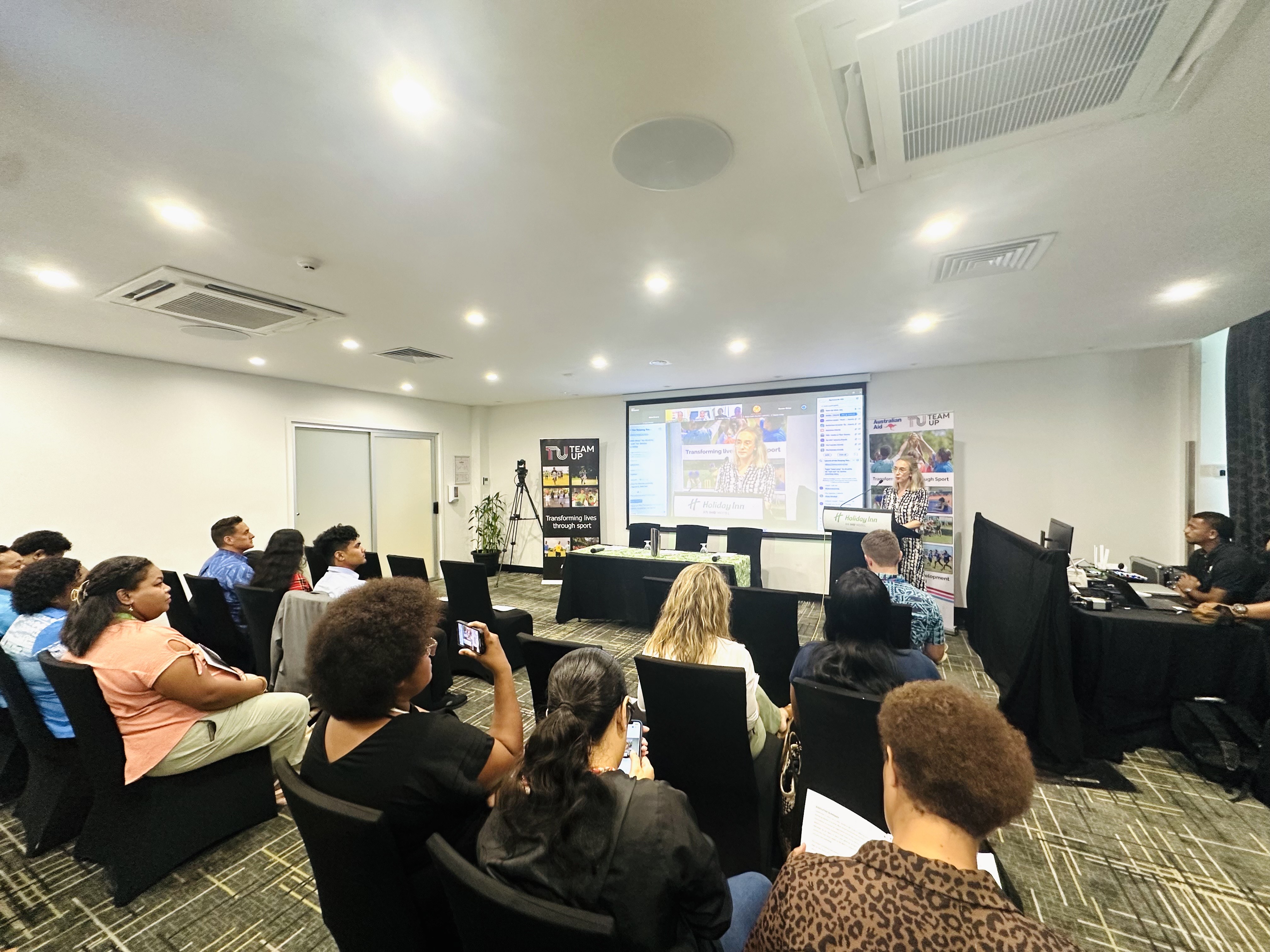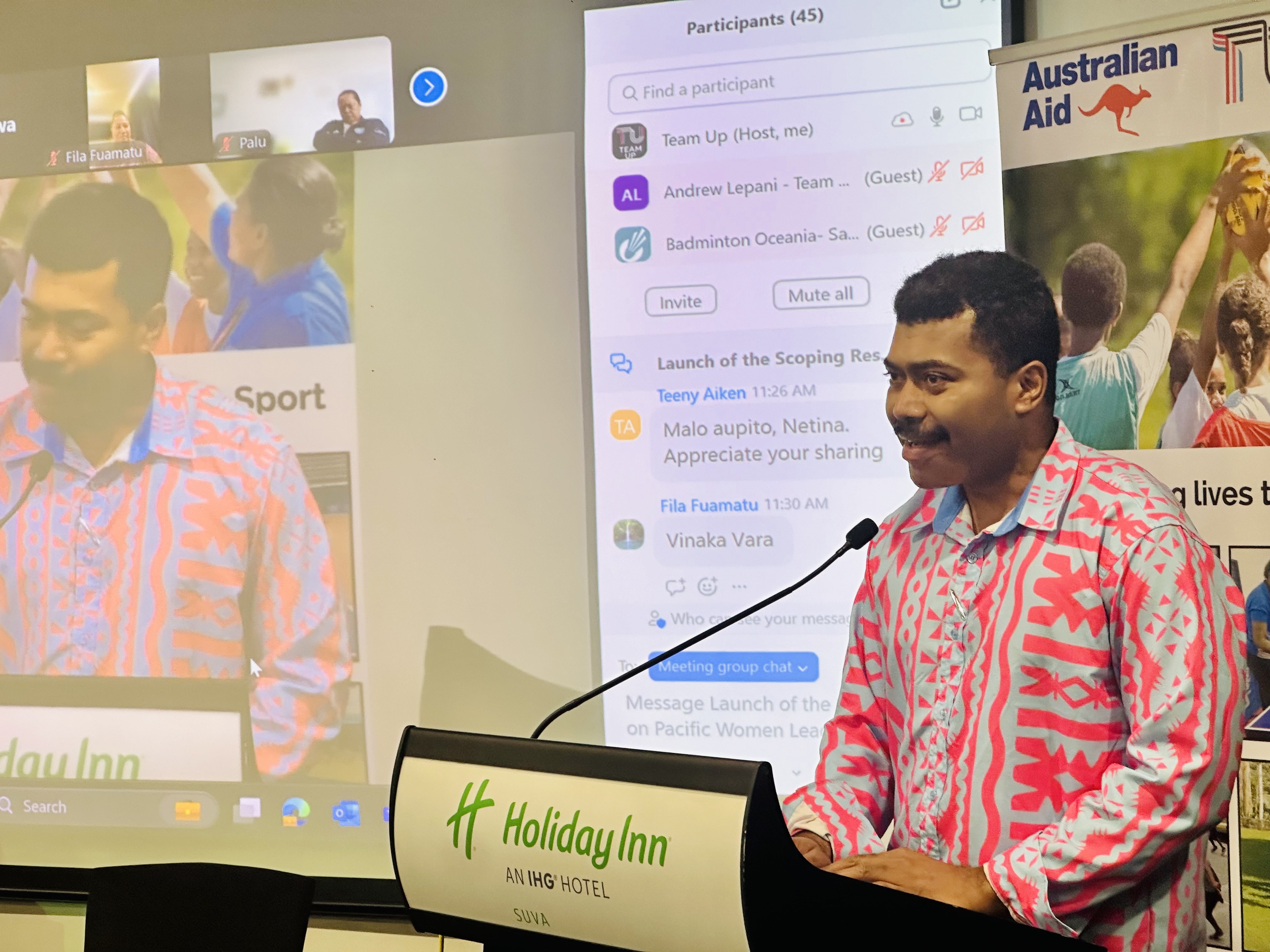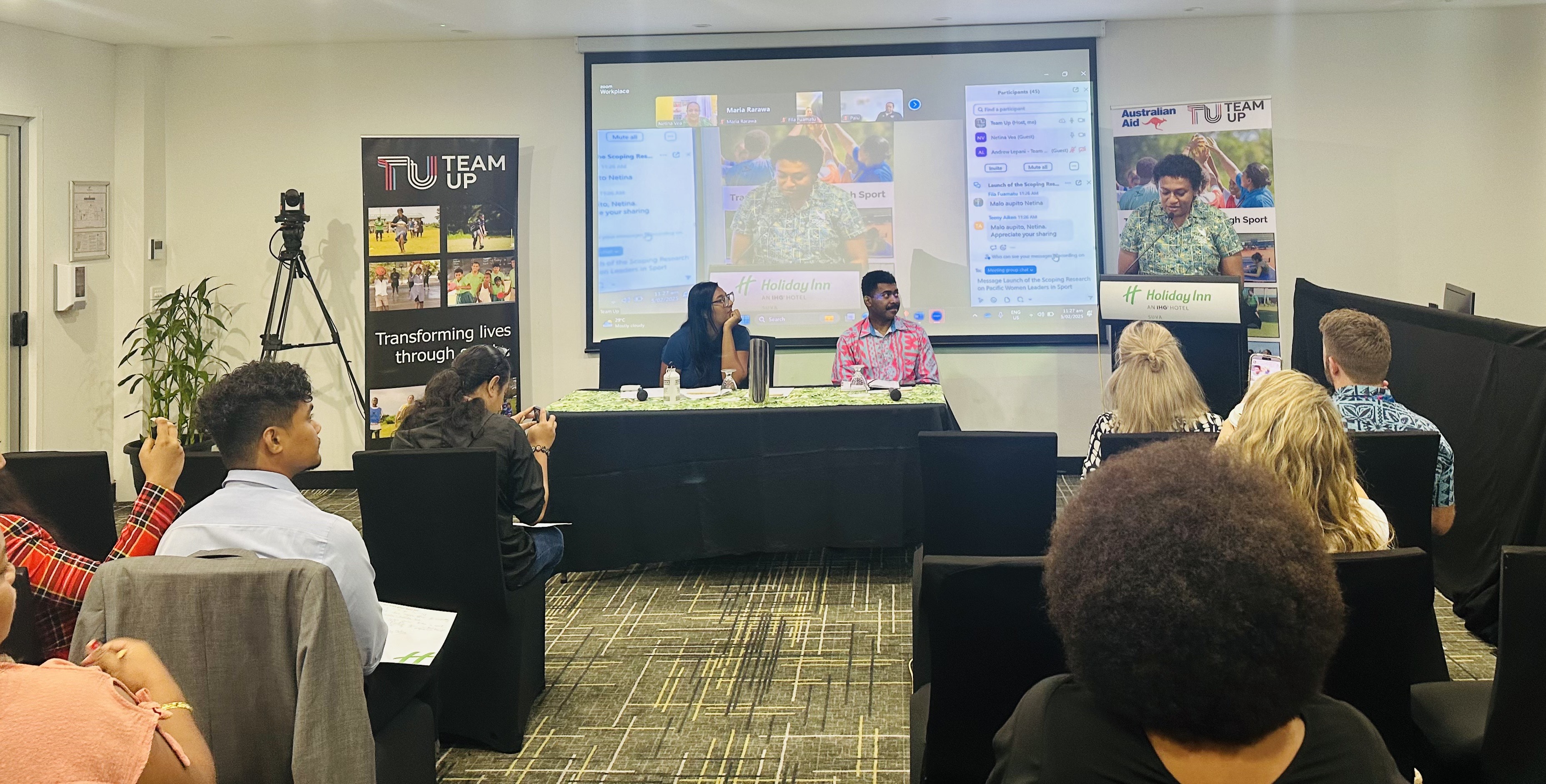A new scoping study has highlighted the need for stronger, more inclusive leadership in sport across the Pacific, with a particular focus on increasing the representation of women, including women with a disability, in leadership roles.
The research, conducted by the Australian Government’s sport for development program, Team Up, was announced this week (Wednesday 5 February) through a hybrid media launch, with the in-person component taking place in Suva, Fiji. This study represents the first phase of a broader initiative by Team Up focused on enhancing leadership pathways for Pacific women in sport.
The research was conducted over five months in 2024 via an online survey, through a collaboration between Team Up and the Institute of Health and Sport at Victoria University. Participants from across the Pacific shared their experiences, highlighting the challenges and opportunities they face in sports leadership roles.
The insights gathered from this research will inform the development of a targeted leadership initiative to support and increase women leaders in sport, which will be co-designed by women leaders and key stakeholders. In addition to this, the findings from this research fill a data gap on the status of Pacific women leaders in sport and Team Up hopes the research is a catalyst to generate urgent discussions on the status of women leaders in the various Pacific Island countries.
At the launch, representatives from several regional and national organisations shared their reflections on the research, including the Oceania National Olympic Committees (ONOC), the Pacific Disability Forum (PDF), and the Tonga Sports Association and National Olympic Committee.
Quotes attributable to Team Up’s GEDSI and Safeguarding Advisor, Roshika Deo:
“Through our Team Up programs, we have seen women and girls progress from participants to volunteers and, in some cases, into leadership roles as program managers and coaches. In fact, in some of the countries where our programs operate, we are seeing gender parity, or even greater representation of women.
We know that while progress has been made, challenges remain. And that is exactly why this research is so important, it provides us with benchmark data, a catalyst for action, to ensure that we continue to address barriers effectively and utilise the opportunities available to increase and support Pacific women leaders in sport; including women of diverse gender identities and sexual orientation, women with disabilities and minority ethnic women.”
Quotes attributable to Oceania National Olympic Committees' Acting Chief Sport Education Program Officer, Varanisese Karisitiana:
“Having baseline data like this is essential to understanding the gaps that need to be addressed. The Oceania National Olympic Committee , through the Olympic Movement, is committed to creating a safe, fair, and inclusive sporting environment for women. That’s why, in partnership with Team Up through the Oceania Impact Network, we are strengthening the capacity of safeguarding focal points, both men and women, across the region. This is a key step toward making Oceania a global leader in safe sport, ultimately creating more opportunities for women and people with disabilities to participate and excel in and through sport.”
Quotes attributable to Pacific Disability Forum’s Programme Officer, Leslie Tikotikoca:
“Through my work, I have seen firsthand the challenges that women with disabilities face in sports, both as participants and leaders. They often struggle with gender bias and lack of accessible opportunities. However, I have also seen when given the right opportunities, these women become strong leaders and role models. That’s why the Pacific Disability Forum has worked with Team Up over the last couple of years and recently signed a Memorandum of Understanding (MoU) with Team Up to strengthen disability inclusion in sports across the Pacific.
Through this partnership, we are working closely with Team Up to develop an accessibility audit checklist, ensuring sports facilities and programs are designed with inclusion in mind.”
Quotes attributable to the CEO of Tonga Sports Association and National Olympic Committee, Netina Latu:
"As a woman leader in sport, one of the biggest challenges I’ve faced is overcoming deeply ingrained cultural and societal norms that often limit women’s roles in leadership. There’s still a widespread belief that decision-making in sport should be left to men, making it difficult for women to access leadership positions or be taken seriously in those roles. This challenge mirrors the findings from this scoping research, which highlights the gaps that still exist for women in sport leadership. Data like this is crucial because it helps us understand where progress is needed and ensures that both men and women have equal opportunities to succeed.”








